Every time you pick up a pill, a bottle, or a cream, you’re trusting that it will do what it says without hurting you. That trust is worth protecting, and a few simple habits can make a big difference.
First, always read the label. The dosage instructions, warnings, and expiration date are there for a reason. If something looks fuzzy, ask your pharmacist or doctor right away—don’t guess.
Second, keep a list of every medication you’re taking, including over‑the‑counter drugs and supplements. Some “natural” products, like the procaine supplement myth, can interact badly with prescription meds. Having the list handy helps your healthcare provider spot dangerous combos.
Third, watch for side‑effects. Most meds list common reactions, but if you notice something new—like unusual dizziness, rash, or stomach upset—note it and call your doctor. Early reporting can prevent a problem from getting worse.
Fourth, store medicines properly. Heat, moisture, and light can break down drugs, making them less effective or unsafe. Keep pills in a cool, dry place, away from kids and pets.
Finally, never share your prescription with anyone else. Even if a friend says they have the same condition, their health profile is different and the drug could cause harm.
Ordering meds online is convenient, but it’s also a common place for scams. Before you click “buy,” verify that the website is licensed in your country. In Australia, look for a TGA registration number; in the US, check for a .gov or .pharmacy extension.
Second, watch for red flags: unbelievably low prices, no requirement for a prescription, or overly aggressive pop‑ups. These signs often point to counterfeit products that could contain harmful ingredients.
Third, use a secure payment method. Credit cards usually offer better fraud protection than direct debit or wire transfers. Keep a copy of your order receipt and any email confirmations.
Fourth, read reviews from multiple sources, not just the site’s own testimonial page. Real customer experiences can reveal hidden issues like delayed shipping or mismatched medications.
Finally, after your meds arrive, inspect the packaging. Legitimate products have clear labeling, batch numbers, and proper seals. If anything looks off, contact the pharmacy and ask for a replacement or refund.
Putting these habits into practice doesn’t take much time, but it builds a solid safety net around every medication you use. Whether you’re filling a prescription at the local pharmacy or ordering a supplement online, staying alert and informed protects your health and peace of mind.
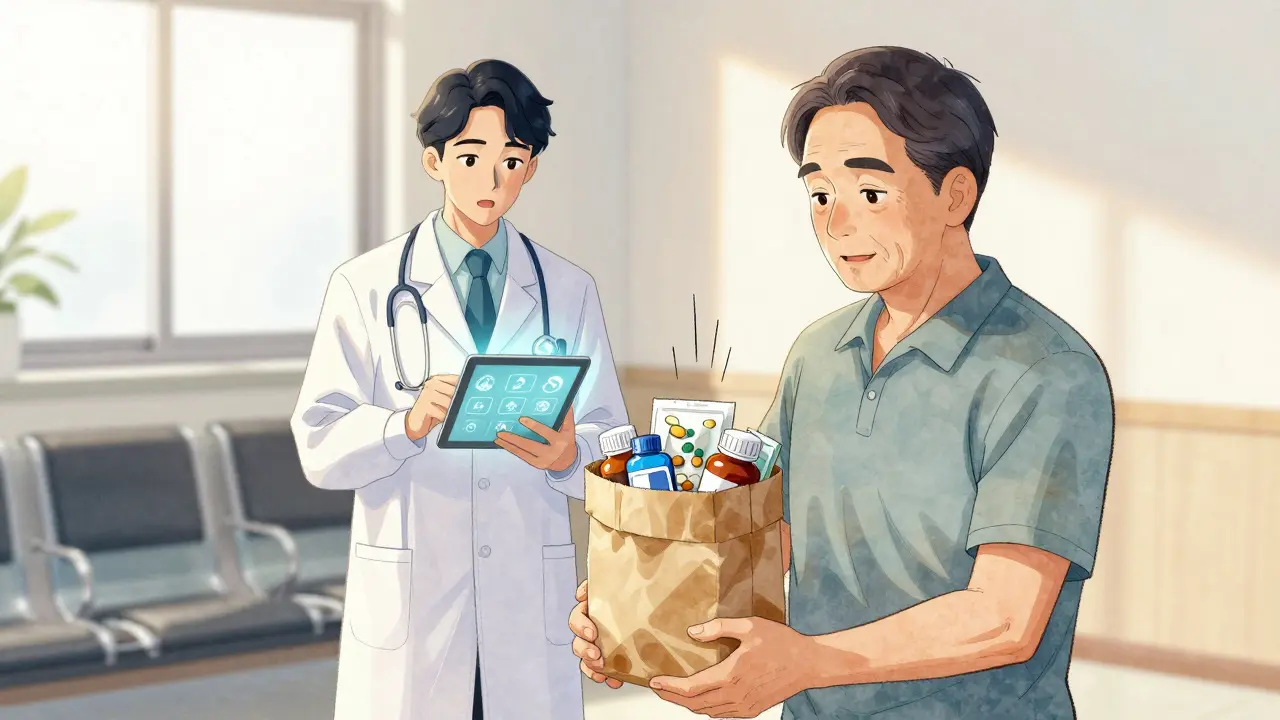
Sharing your complete medical history-including prescriptions, OTC meds, and supplements-is critical to avoid dangerous drug interactions and preventable errors. Learn how to get it right.
Read More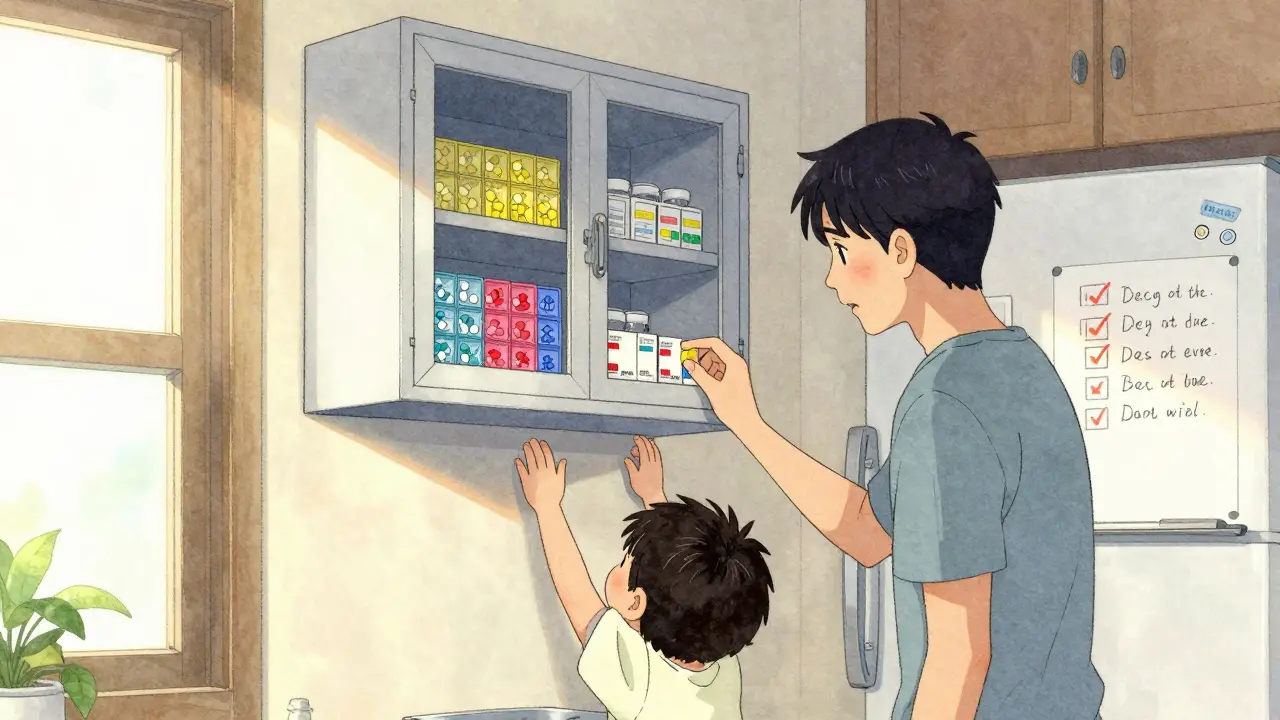
Learn how to create a safe medication routine at home to prevent accidental poisonings and dosing errors. Practical steps for storing, tracking, and managing meds for kids and seniors.
Read More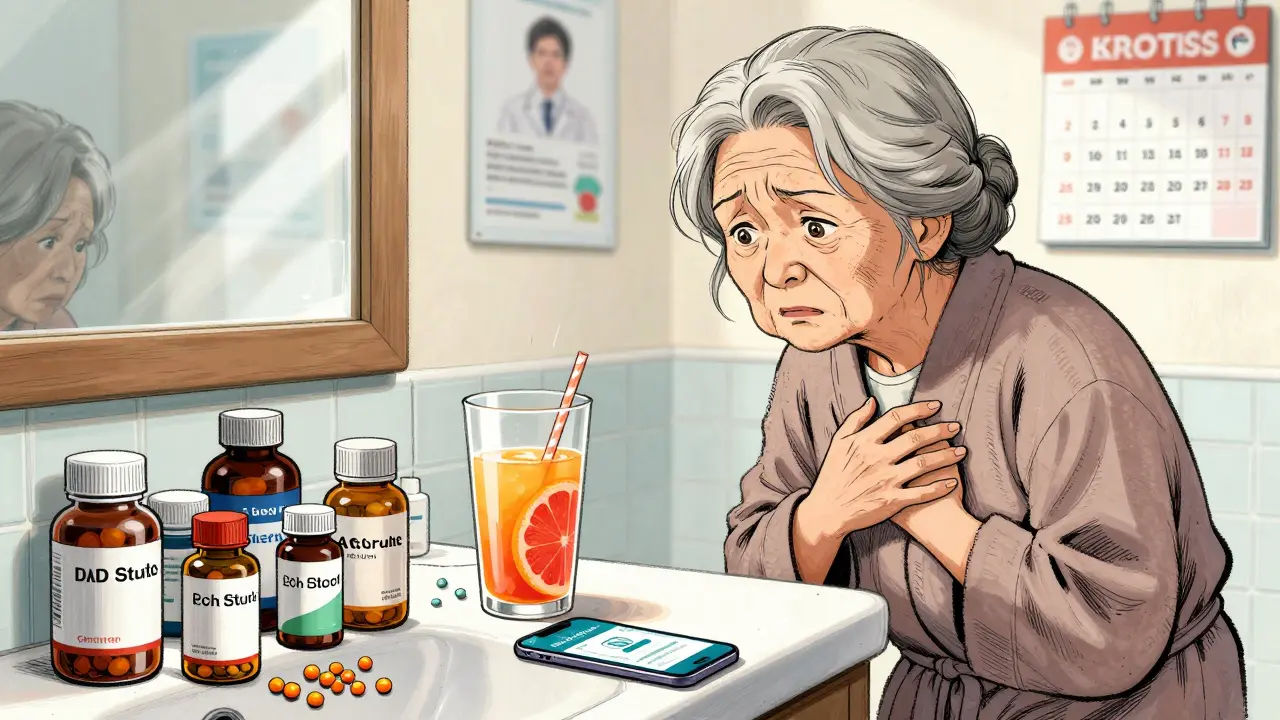
Drug interactions discovered after approval can be deadly - and they're more common than you think. Learn how post-market surveillance catches hidden risks, why clinical trials miss them, and what you can do to stay safe.
Read More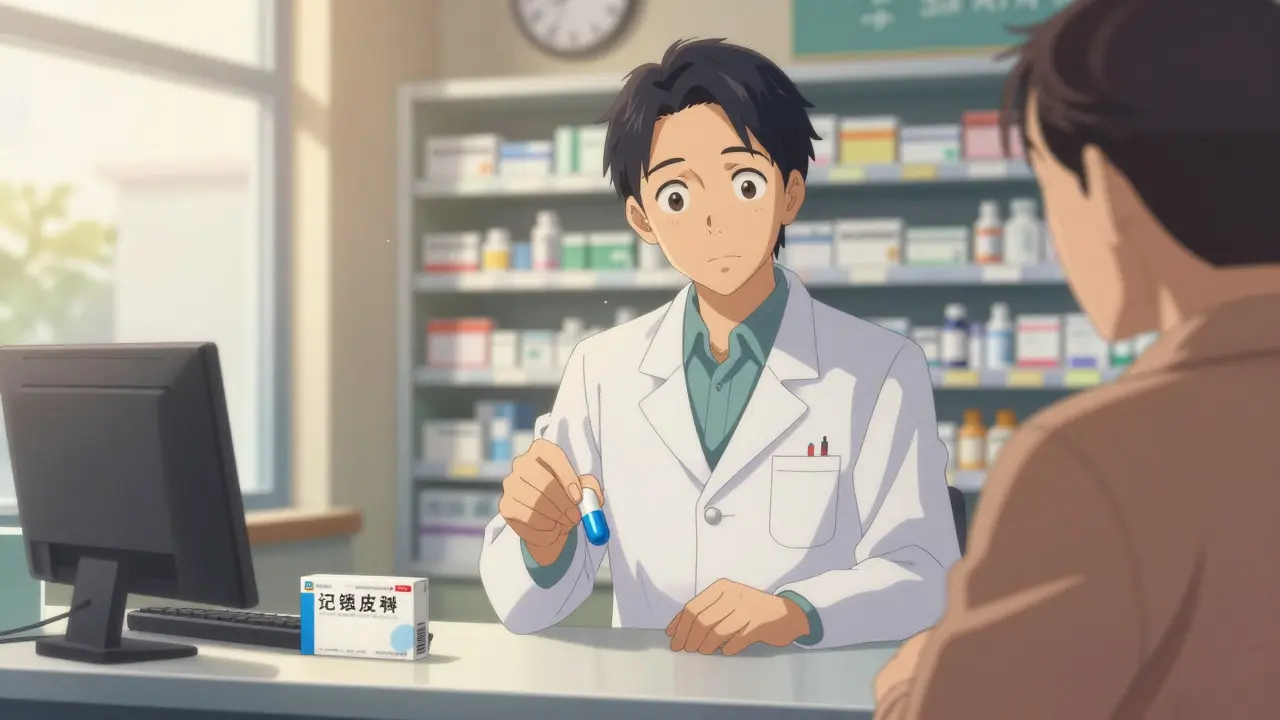
Pharmacists support generic substitution to cut costs, but patients often resist due to mistrust, confusion, or fear. Learn the real concerns behind the counter - from NTI drugs to patient education gaps - and how pharmacists are working to build trust.
Read More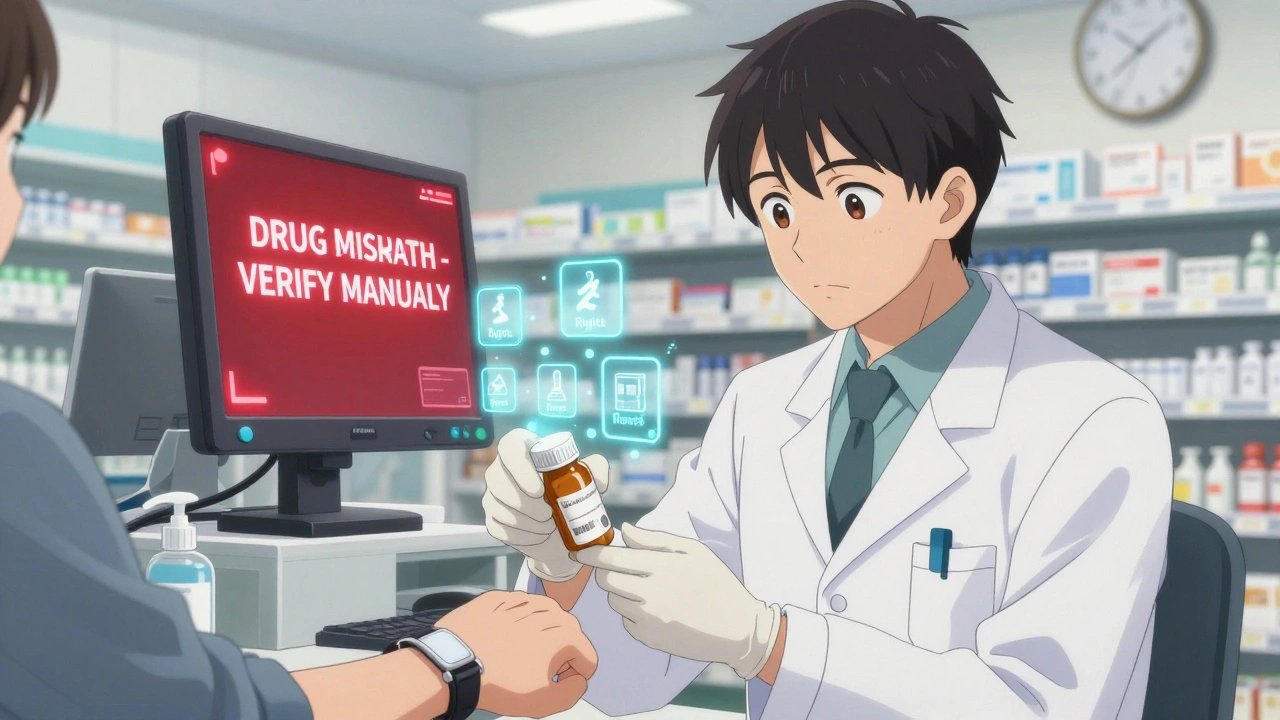
Barcode scanning in pharmacies cuts dispensing errors by up to 93% by verifying the right patient, drug, dose, route, and time. Learn how it works, where it fails, and why it’s essential for medication safety.
Read More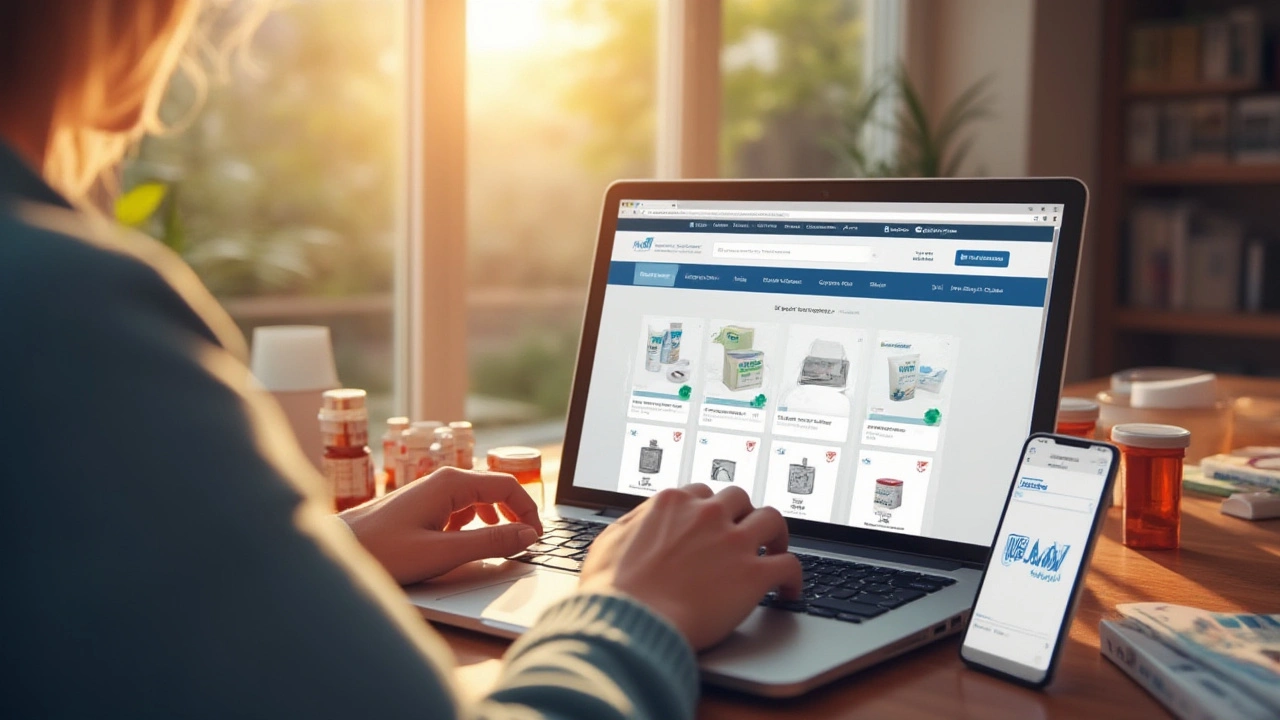
A deep look at Mednow.ca, Canada's online pharmacy: How it works, prices, safety, and what sets it apart. Honest facts, real tips, and user-centered insights.
Read More